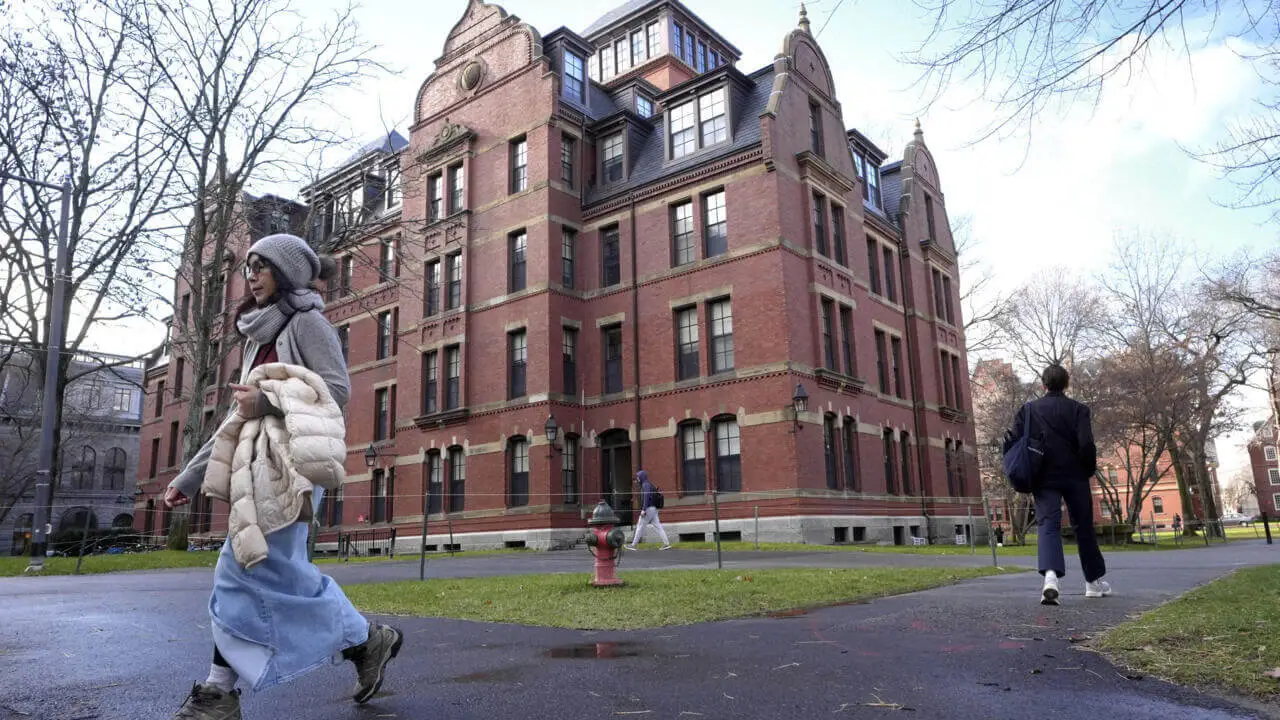
In a shocking move, the Trump administration has blocked Harvard University’s ability to admit new international students. This unprecedented action has sparked a wave of concern across academic institutions, international student communities, and education advocates around the world.
At the center of the controversy is the Department of Homeland Security’s (DHS) decision to revoke Harvard’s certification under the Student and Exchange Visitor Program (SEVP), effectively barring the institution from issuing I-20 forms—essential for securing student visas.
Why This Happened
The administration cited national security and foreign influence concerns. Specifically, it accused Harvard of fostering antisemitism and failing to comply with federal oversight of foreign nationals on campus. Some officials also raised suspicions about the university’s alleged ties to foreign governments, including China.
Secretary of Homeland Security Kristi Noem stated that the decision is a warning to all U.S. colleges: hosting international students is a privilege, not a right. According to her, institutions must demonstrate transparency, cooperation with federal authorities, and alignment with American values to maintain access to international education programs.
The Impact on Students
Harvard currently hosts nearly 7,000 international students from more than 150 countries. With this policy in place, no new international students can enroll, and current students face uncertain futures.
Students planning to join Harvard for the upcoming academic year are now scrambling to find alternative institutions. Others fear deportation or disruption of their studies due to visa complications.
This move disproportionately affects students from India, China, and parts of Europe, who make up the bulk of Harvard’s international student body. For many, attending Harvard is not just about earning a degree—it’s a lifelong dream, one that now hangs in the balance.
Harvard’s Response
Harvard University has strongly pushed back. In a public statement, the administration labeled the move as politically motivated and legally flawed. The university has vowed to challenge the decision in court, calling it a direct attack on academic freedom and global collaboration.
Legal experts believe Harvard has a strong case. Universities are considered independent institutions with a right to enroll qualified candidates, regardless of nationality. If the case proceeds to court, it could set a major precedent for how federal agencies interact with higher education institutions.
A Broader Political Strategy?
This development appears to be part of a wider pattern. Since returning to office, President Trump has prioritized what he calls a “patriotic overhaul” of American education. His administration has taken steps to cut research funding to institutions deemed “uncooperative,” threatened tax-exempt status, and scrutinized university partnerships with foreign entities.
Critics argue this amounts to a political crackdown on academic independence. Supporters say it’s about restoring control over institutions they believe have drifted too far from national interests.
Global Repercussions
The U.S. has long been a top destination for international students, with institutions like Harvard drawing the best and brightest from across the globe. Blocking one of its premier universities from accepting foreign students could damage that reputation and drive talent to other countries such as Canada, the U.K., or Australia.
Universities in these nations are already seizing the opportunity, launching campaigns to attract displaced students from Harvard. In the long run, this could lead to a redistribution of global talent and a shift in the landscape of higher education.
What Happens Next?
Harvard is expected to file for an emergency injunction that would allow it to resume international admissions while the case is resolved in court. Advocacy groups are also preparing to challenge the policy, arguing that it unfairly targets students based on nationality and violates the principles of equal access to education.
For students and educators, the message is clear: international education in the U.S. is entering a period of uncertainty. Until the courts weigh in, the fate of thousands of aspiring scholars remains in limbo.
